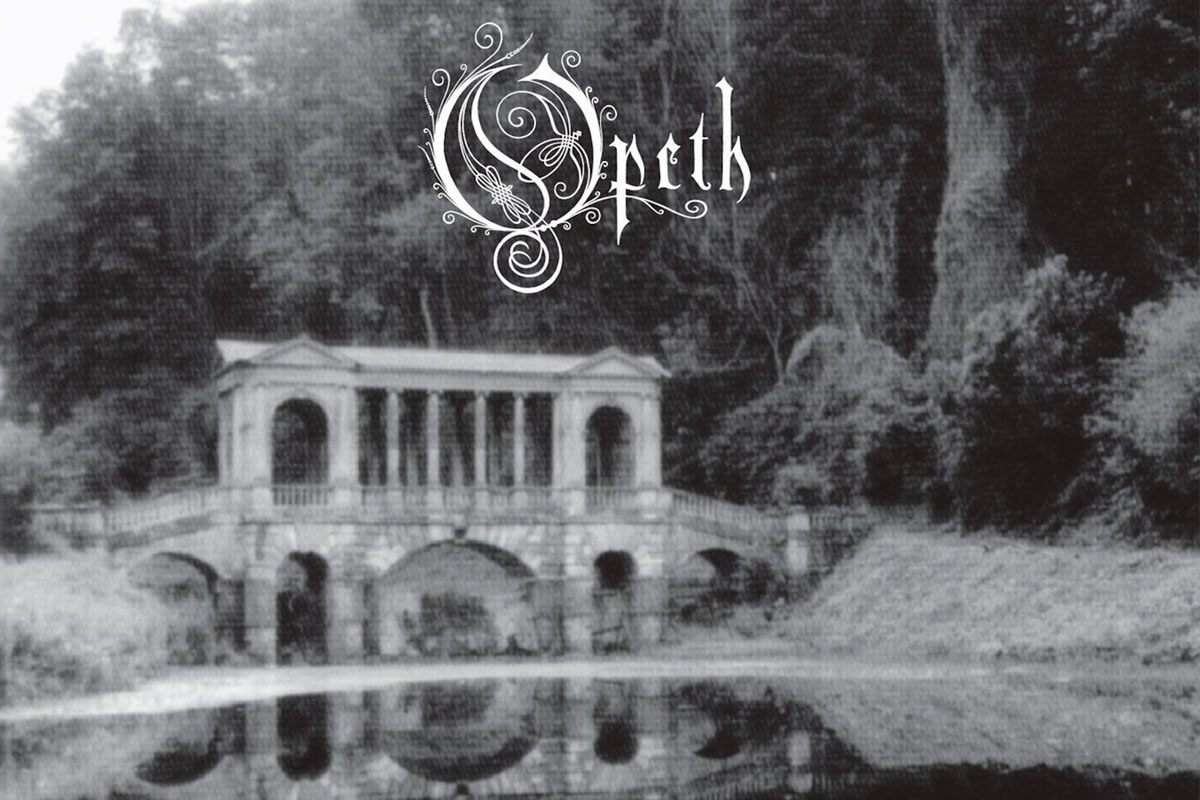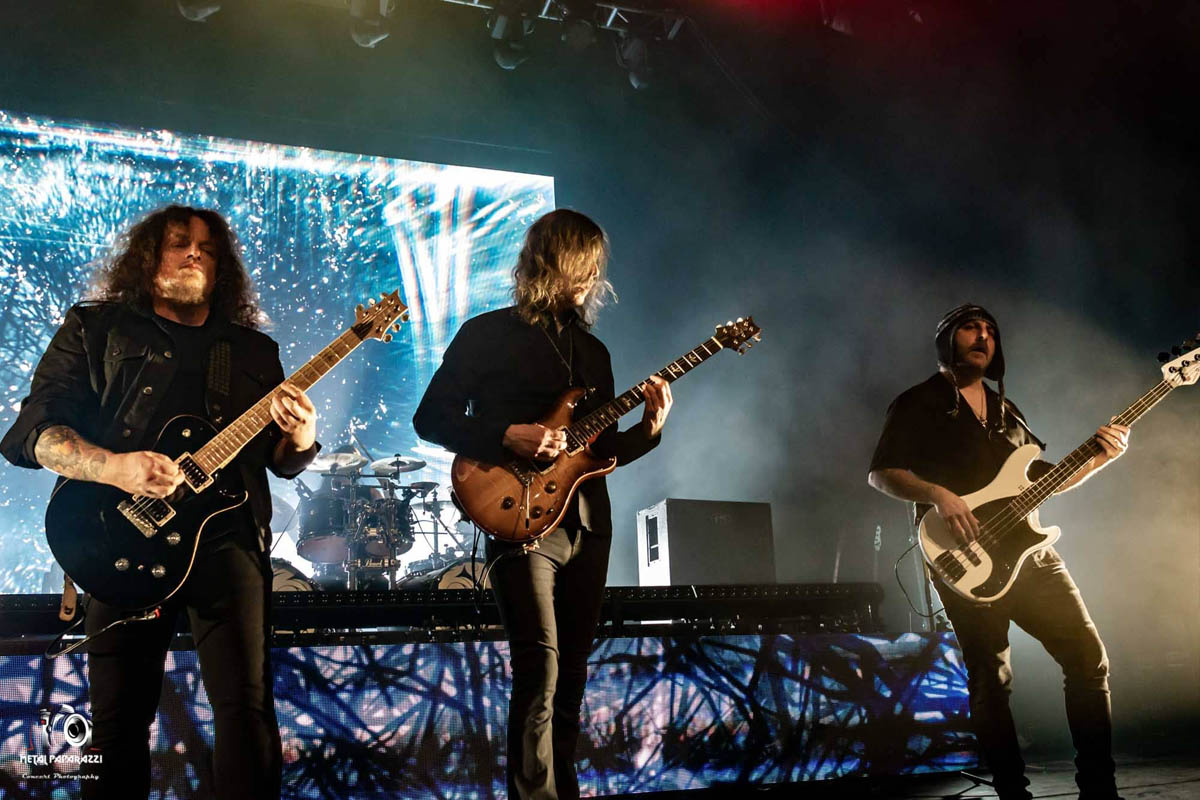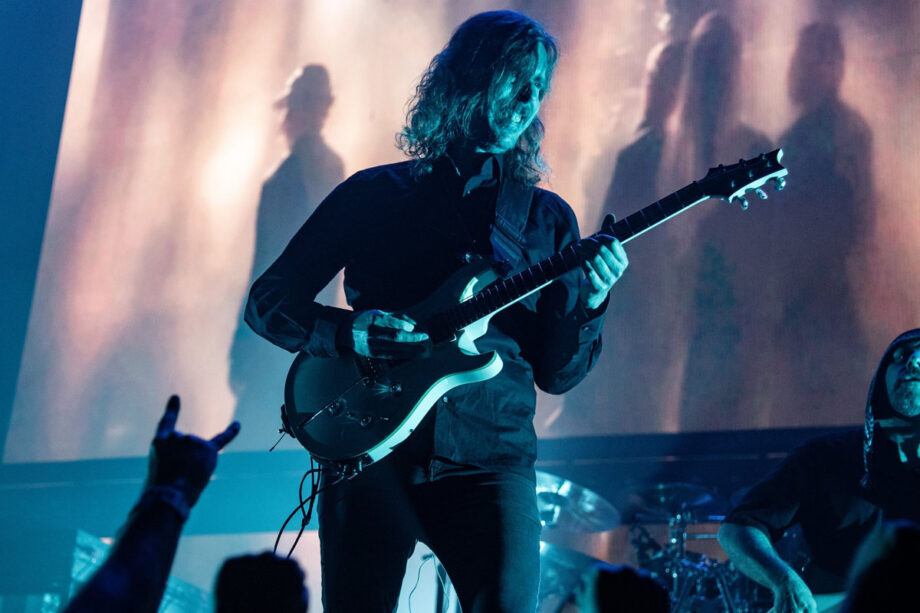‘Morningrise’ is the second studio album released in 1996 by Swedish metal band Opeth. It blends elements of progressive rock, folk, black metal, and death metal. The album also marked the end of an era for the band, as it was the last to feature drummer Anders Nordin and bassist Johan De Farfalla.
Background and Release

Opeth recorded ‘Morningrise’ at Unisound Studio in Finspång, Sweden, during March and April 1996. It was released on June 24, 1996, in Europe by Candlelight Records and on June 24, 1997, in the United States by Century Black.
This album was produced by Dan Swanö, a famous name in the extreme metal scene. It was also the last Opeth record to feature Anders Nordin on drums and Johan De Farfalla on bass, as both left the band shortly after its release.
Musical Style and Influences

‘Morningrise’ builds on the sound of Opeth’s debut album, ‘Orchid,’ but with smoother transitions between riffs and a greater focus on melody. The album combines elements of:
- Progressive rock, similar to bands like Camel.
- Black metal, heard in the harsh, high-pitched screams.
- Death metal, present in the low growls and heavy guitar work.
- Folk and acoustic music, which appear throughout the album.
Compared to ‘Orchid,’ the songs on ‘Morningrise’ are better structured. This makes them easier to follow. However, frontman Mikael Åkerfeldt later said he grew tired of the album’s style because many bands copied it.
‘Morningrise’ is also considered one of Opeth’s least heavy albums, as it has many clean and acoustic sections. Still, some parts, like the long scream at the end of ‘Black Rose Immortal,’ stand among Åkerfeldt’s most intense performances.
Track Breakdown
1. ‘Advent’
The album opens with ‘Advent,’ a track that still carries the chaotic style of ‘Orchid.’ The song features a mix of heavy and acoustic parts, with a notable bass solo near the end.
2. ‘The Night and the Silent Water’
This song was inspired by the death of Mikael Åkerfeldt’s grandfather. It features some of the most black metal-like vocals on the album and has a dark, melancholic atmosphere. The track ends with blast beats. This is something not common in Opeth’s later music.
3. ‘Nectar’
‘Nectar’ stands out for its prominent bass lines and a strong balance between electric and acoustic guitars. Some fans may feel the song could’ve been shorter, but it remains an important part of the album.
4. ‘Black Rose Immortal’
At over 20 minutes long, this is Opeth’s longest recorded song. It features multiple shifts between heavy and soft sections, and a sudden transition around the 8-minute mark. Some parts have been compared to Iron Maiden due to their melodic nature. The song also contains one of Åkerfeldt’s longest screams.
5. ‘To Bid You Farewell’
The final song is entirely clean-sung. This makes it unique at the time of its release. It focuses on acoustic and melodic electric guitar sections. The lyrics tell the story of loss and separation with a person watching a loved one leave. The clean guitar solo at the 4-minute mark is often seen one of the album’s best musical moments.
Legacy and Impact

‘Morningrise’ helped shape Opeth’s early sound, but Mikael Åkerfeldt later wanted to move in a different direction. He felt some parts of the album were not enjoyable to listen to. This thought led to a major style change on the next record, ‘My Arms, Your Hearse.’
‘Morningrise’ introduced many elements that the band would later refine like long song structures, acoustic interludes, and complex arrangements. The 2000s reissue included a bonus track named ‘Eternal Soul Torture.’ It’s a 1992 demo featuring parts that would later be used in ‘Advent’ and ‘In Mist She Was Standing’ from ‘Orchid.’





